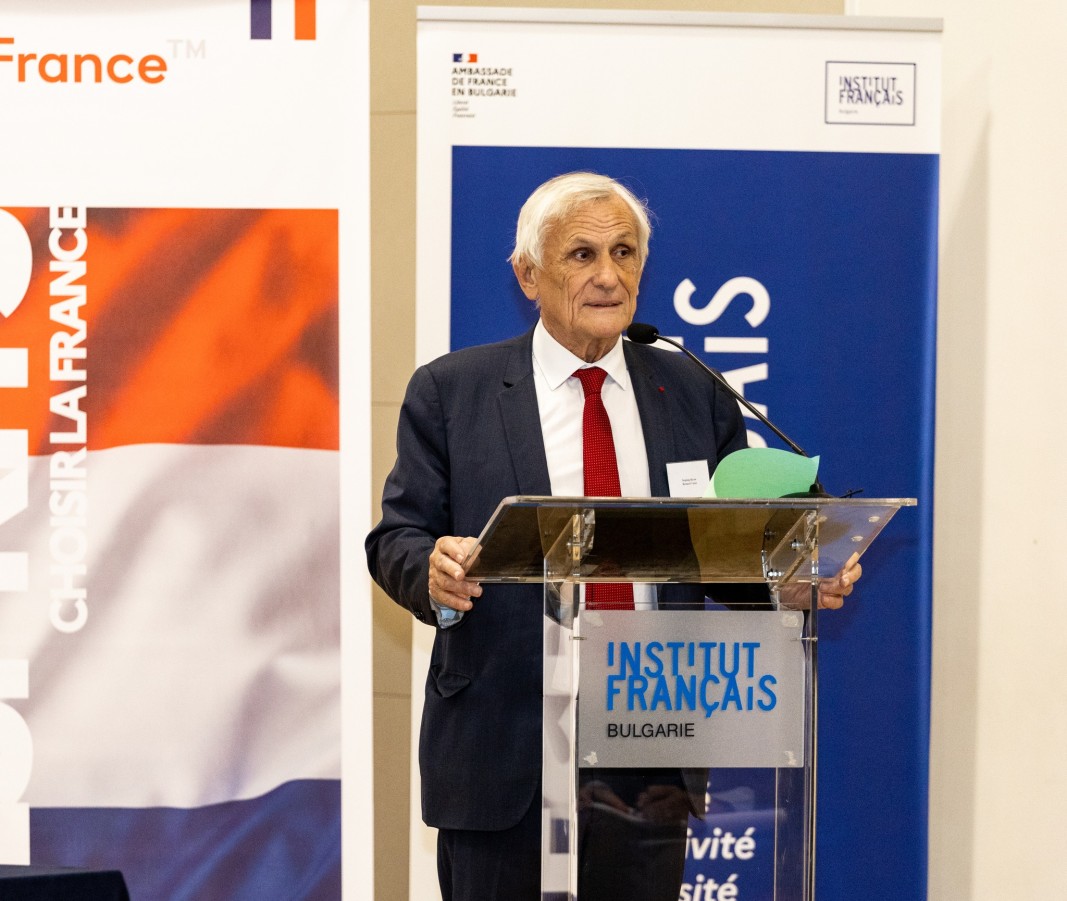In Bulgaria there are laws, the toolbox is there, but it is not being used, says Bernard Vatier, chairman of the Paris Bar. The International Bar Association Conference (CIB) he is chairman of initiated a conference in Sofia with a focus on fighting corruption as a perpetually renewed challenge. The forum was organized by the French embassy in Bulgaria and the French Institute on the occasion of the 10th anniversary of the establishment of the Club of French-speaking Lawyers in Sofia and the 30th anniversary since Bulgaria became a member of the International Organization of La Francophonie.
Lawyers, magistrates and representatives of public institutions debated on the experience and the current reforms taking place in France and in Bulgaria.
“The aim of the conference is to make a summary of the existing means for fighting corruption in Bulgaria and in France, two countries members of the EU, and from the experience of one, the other can draw on the practice that is best for them,” Bernard Vatier says in an interview with Radio Bulgaria. 
He says the proficiency accumulated in other countries must be used so as to boost the tools for fighting corruption which Bulgaria already has.
“I was very impressed by what the former deputy minister of justice said (Andrey Yankulov – editorial note). He explained that the legal provisions are there, but that there is not much point to them because the behaviour has not changed. That is, I believe, the big problem connected with corruption. Corruption is a question of upbringing. People get accustomed to corruption, and these models of behaviour need to change.”
Fighting corruption in this sense is based on upbringing or prevention, but also on sanctions, i.e. justice has to sanction it. Punishment mechanisms need to be put in place. 
“For the purpose, magistrates have to be independent,” Bernard Vatier goes on to say. “This takes us back to the problem of the independence of the justice system and the role of the prosecutor’s office. We have to be very alert because if there is no punishment corruption acquires legitimacy. If I don’t get caught I have every right to go on. With corruption, there is one terrible phenomenon, and it is its stealth and the legitimacy that the person practicing it gradually acquires. This practice must be put an end to, and for this to happen we need an organized prosecutor’s office.”
In a country which does not fight corruption, democracy is constantly under threat of collapse, Bernard Vatier says. On the one hand, economic growth is hampered, and on the other – the end result is despotism by the people who wield these corruption tools.
To what an extent should we look for corruption practices in events such as the hijacking of the ship Galaxy Leader, with two Bulgarian crew members on board? 
Here is Bernard Vatier with the differences between piracy and corruption:
“With piracy the criminal act is visible, we are watching, for example, footage on TV. The same is true of theft. That theft that has been committed is there to be seen, even if we don’t know who the thief is. With corruption the crime is absolutely discrete. You see, it is easy to prosecute a pirate or a thief, but it is very difficult to bring someone who has committed corruption to justice, because that is something that is not visible. And that is the problem. That is why tools are needed that will allow there to be transparency and will bring to light possible instances of corruption,” Bernard Vatier says in conclusion.
Translated and posted by Milena Daynova
Photos: French Institute in Bulgaria
President Rumen Radev will today attend the opening ceremony of Forest Week in front of St Alexander Nevsky Cathedral. The theme of this year's celebrations is "A century of eternal creation, preservation and care!" This year marks the 100th..
For 100 years, foresters in Bulgaria have been organizing Forest Week. A concert entitled “A century of eternity” on 7 April will give the official start to the initiative dedicated to the planet’s lungs. And though it has been a century since..
The eagerly-awaited Tulip Parade at the University Botanical Garden in Balchik is at its peak. This year’s parade includes more than 45,000 bulbs, and 27 varieties that are new to the Garden, among them Tulipa "Carnaval de Nice, which combines..
A pink pelican has become a real attraction for the residents of Varna. Hundreds of people have spotted it in the area of the Marine Station in the..
This year, Orthodox and Catholic Christians will celebrate the Resurrection of Christ togethe r. On the same date, the entire Christian world will turn..
Artist Vanya Petkova from Kardzhali paints non-traditional icons, depicting saints on ostrich eggs . She started about 15 years ago with images of Jesus..

+359 2 9336 661
